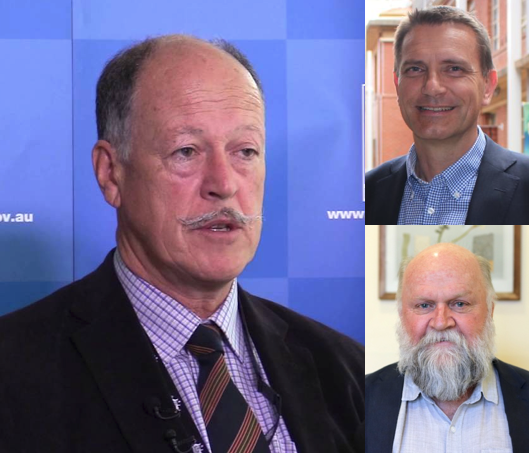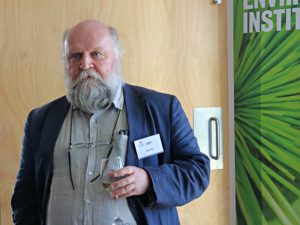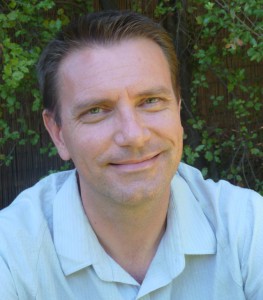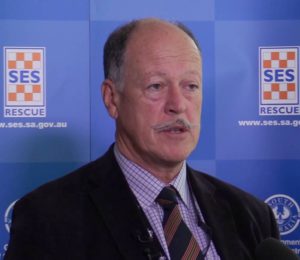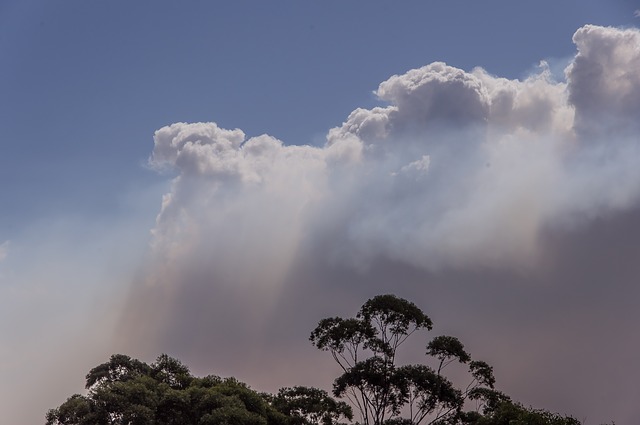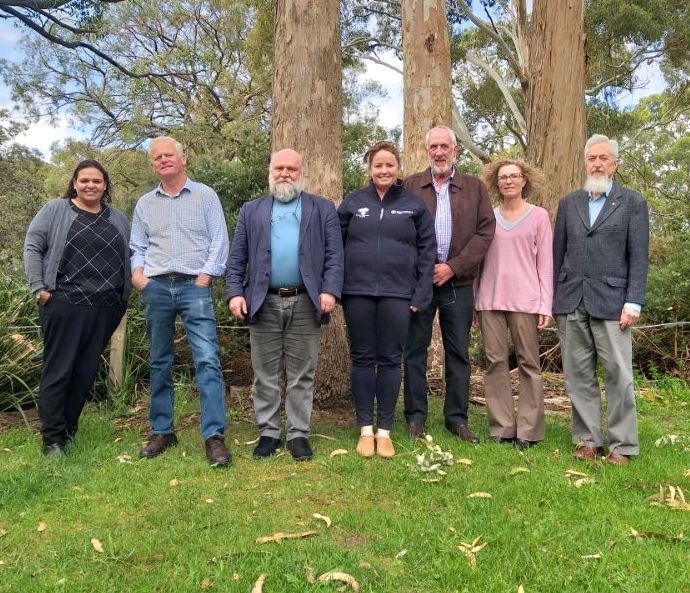Curious. Cutting-edge. Community.
For our Series One, we’re exploring global problems and local solutions in ‘Adapting to extreme weather in our changing world’. Join us as we explore the impact of our changing weather on wildfire behaviour and our natural environments.
Date: Friday 21st February 2020
Time: 3:00 pm – 4:00 pm, followed by drinks in the UniBar
Location: Benham Lecture Theatre, Benham building, North Terrace campus
Cost: FREE, RSVP not required but please add to your diary
Contact: Dr Jasmin Packer 8313 5576
The main ingredients that drive fire activity are wind (spread speed and direction) and fuel availability (amount of fuel and how dry it is). Extended drought affects soil moisture and heatwaves affect the diurnal cycle of heat and moisture in the landscape.
Both drought and heatwaves are impacting fuel dryness and consequently fire behaviour this 2019/2020 fire season, manifesting in intense, sustained fires with bigger footprints, both in area and amount of biomass burnt, as well as increasing the frequency of fire induced thunderstorms.
As new work is required to understand likely future fire regimes under a changing climate, our seminar will explore key issues on fire behaviour, its impact on native vegetation, and potential mitigation strategies.
Speakers and panel
Professor Bob Hill – Director, Environment Institute, The University of Adelaide
Professor Hill has had a profound impact on the study of Botany in Australia. His botanical research has made significant contributions to the areas of palaeobotany, plant systematics, plant ecophysiology and the application of research from these areas to interpreting changes that have occurred to the Australian flora through evolutionary time.
Bob completed his Ph.D. on Tertiary plant macrofossils, and D.Sc. on the interaction between climate change and the evolution of the living Australian vegetation. He has won many awards including the Clarke and Burbidge Medals for his research into the impact of long-term climate change on the evolution of Australian vegetation.
“There is evidence that fires are, at least in some cases, becoming more intense, and this is putting at risk the strategies that plant species have to recover from fire, either vegetatively or reproductively. The recent Kangaroo Island fires provide an important test case of this and if some species fail to recover over significant areas, then we are entering a situation that is new at a time scale that covers tens of millions of years.” said Professor Hill.
Image: Professor Bob Hill
Professor Holger Maier – Program Director, (Civil &) Environmental Engineering Degree Program
Professor Maier’s research is focused on developing improved techniques for the sustainable management of infrastructure, with a particular focus on water, energy and the water-energy nexus. He also explores natural resources directing his focus on water resources and natural hazards in an uncertain environment.
This includes elements of modelling with machine learning and hybrid process/data driven models, optimisation and decision support including strategic planning under deep uncertainty.
He is currently the Research Leader of the Economics and Strategic Decisions research cluster of the Bushfire and Natural Hazards Cooperative Research Centre, as well as the Leader of a project focussed on the development of a decision support system for the assessment of policy and planning investment options for optimal natural hazard mitigation, UNHaRMED.
Image: Professor Holger Maier
John Nairn – State Manager, South Australia Bureau of Meteorology and National Heatwave Project Director
Since joining the Bureau of Meteorology in 1980, John has pursued Antarctic operations, severe weather in Melbourne, specialised airport operations in Sydney, Sydney Olympic and Paralympic Games, and multiple interstate bushfire emergencies.
John has been the State Manager since December 2014, following an extended period as weather services manager in South Australia.
He has developed the Bureau’s heatwave service and conducted a Churchill Fellowship on heatwaves, visiting the UK, Germany and USA in 2013. John also has an MBA, Dip Ed and a BSc Hon in Meteorology and Oceanography, and is now leading his own PhD research on heatwaves.
Image: John Nairn at the South Australian State Emergency Service
Convener – for more information
Dr Jasmin Packer

